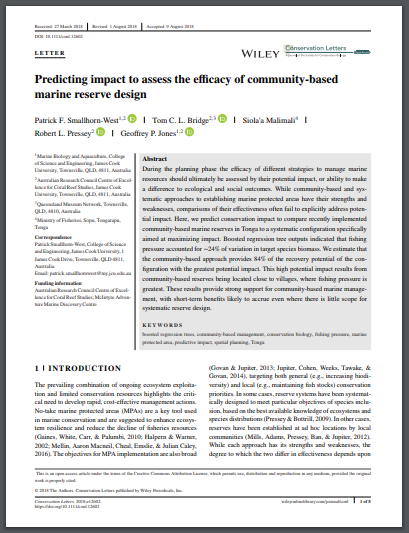
During the planning phase the efficacy of different strategies to manage marine resources should ultimately be assessed by their potential impact, or ability to make a difference to ecological and social outcomes. While community-based and systematic approaches to establishing marine protected areas have their strengths and weaknesses, comparisons of their effectiveness often fail to explicitly address potential impact. Here, we predict conservation impact to compare recently implemented community-based marine reserves in Tonga to a systematic configuration specifically aimed at maximizing impact. Boosted regression tree outputs indicated that fishing pressure accounted for ∼24% of variation in target species biomass. We estimate that the community-based approach provides 84% of the recovery potential of the configuration with the greatest potential impact. This high potential impact results from community-based reserves being located close to villages, where fishing pressure is greatest. These results provide strong support for community-based marine management, with short-term benefits likely to accrue even where there is little scope for systematic reserve design. Here, we predict the potential conservation impact, measured as the recovery of target species biomass, of alternative configurations of no-take MPAs in the Vava'u island group of Tonga.






